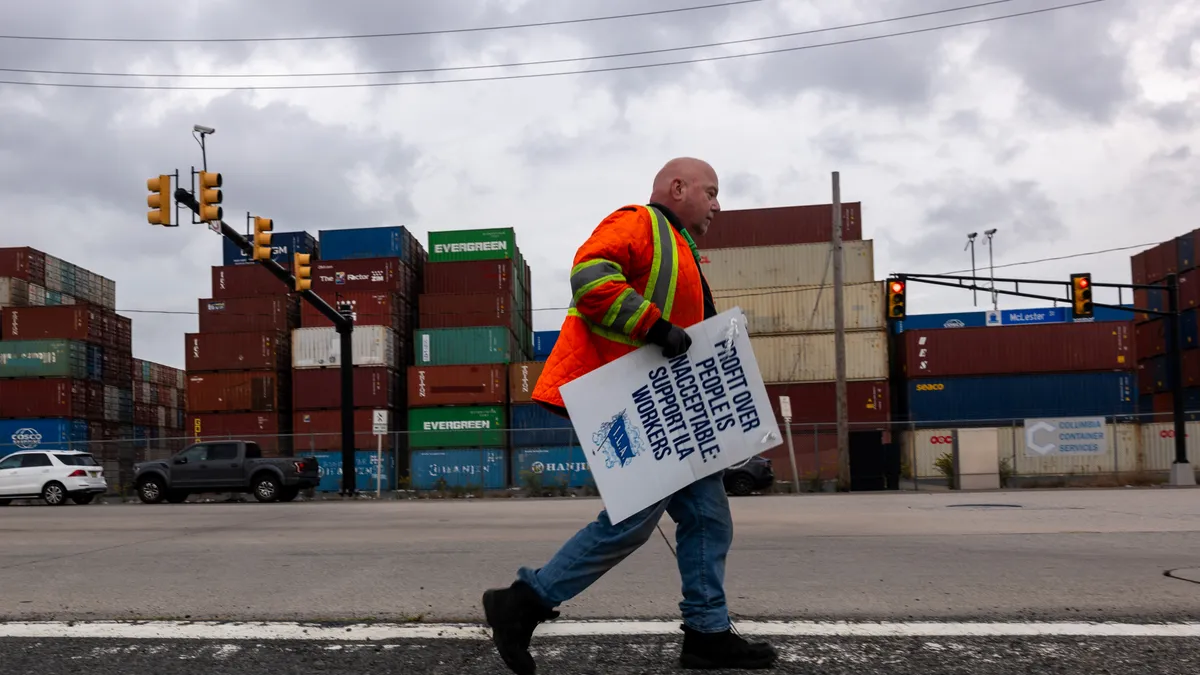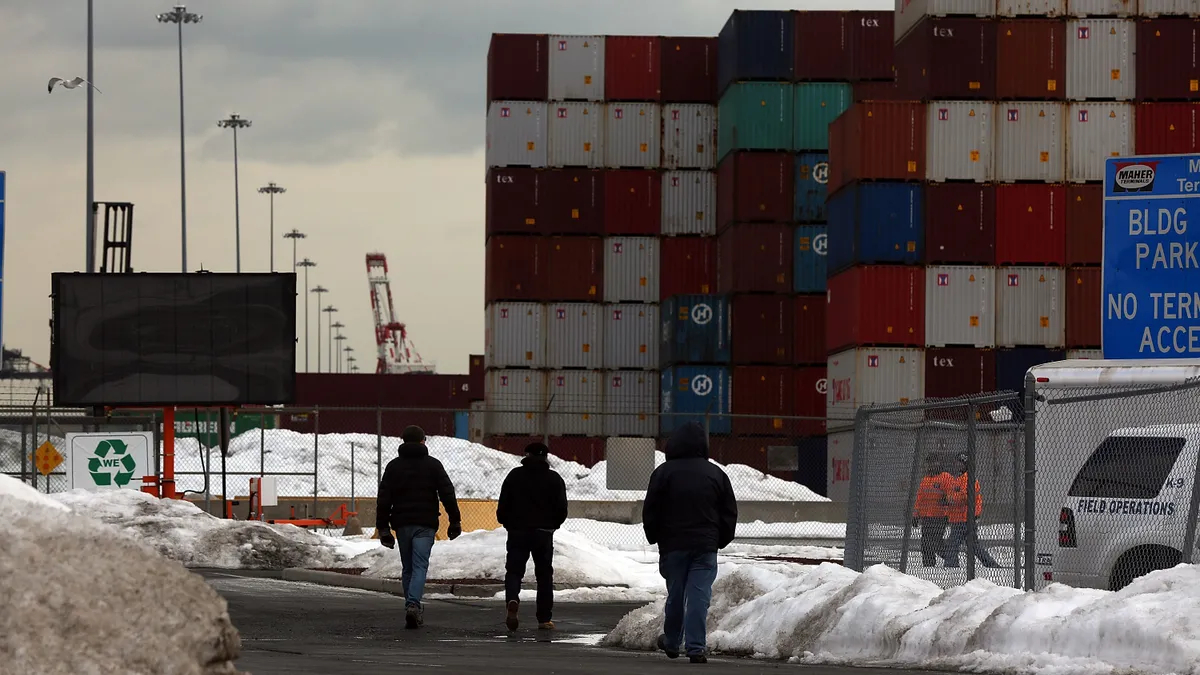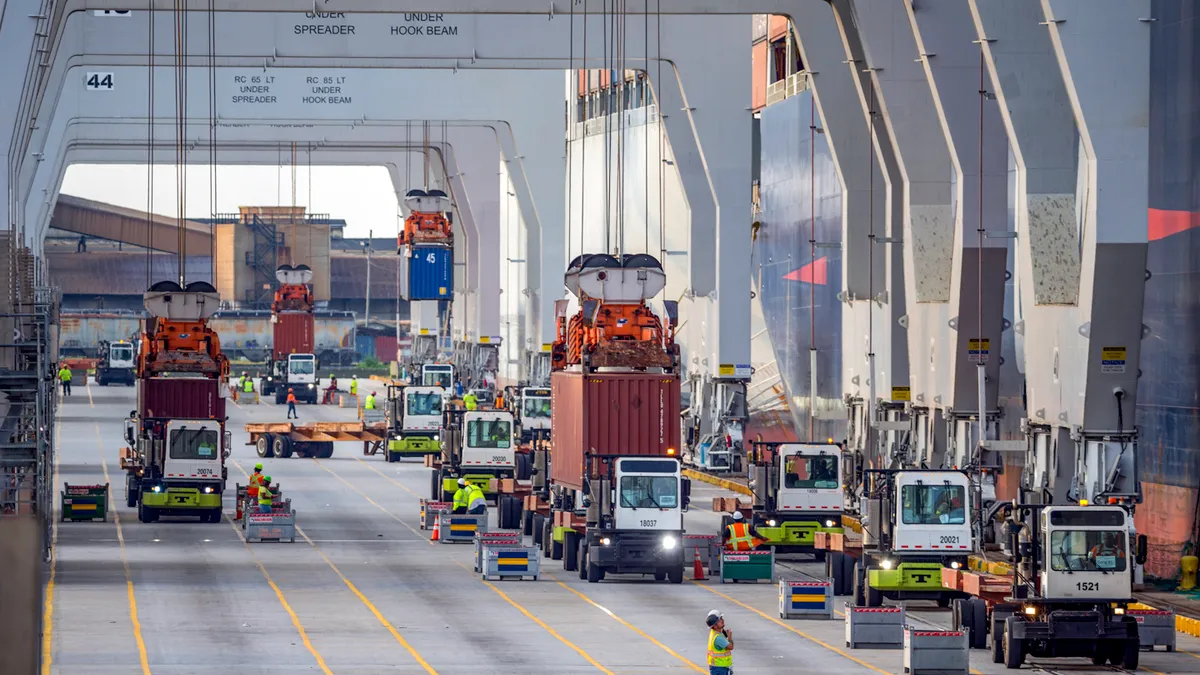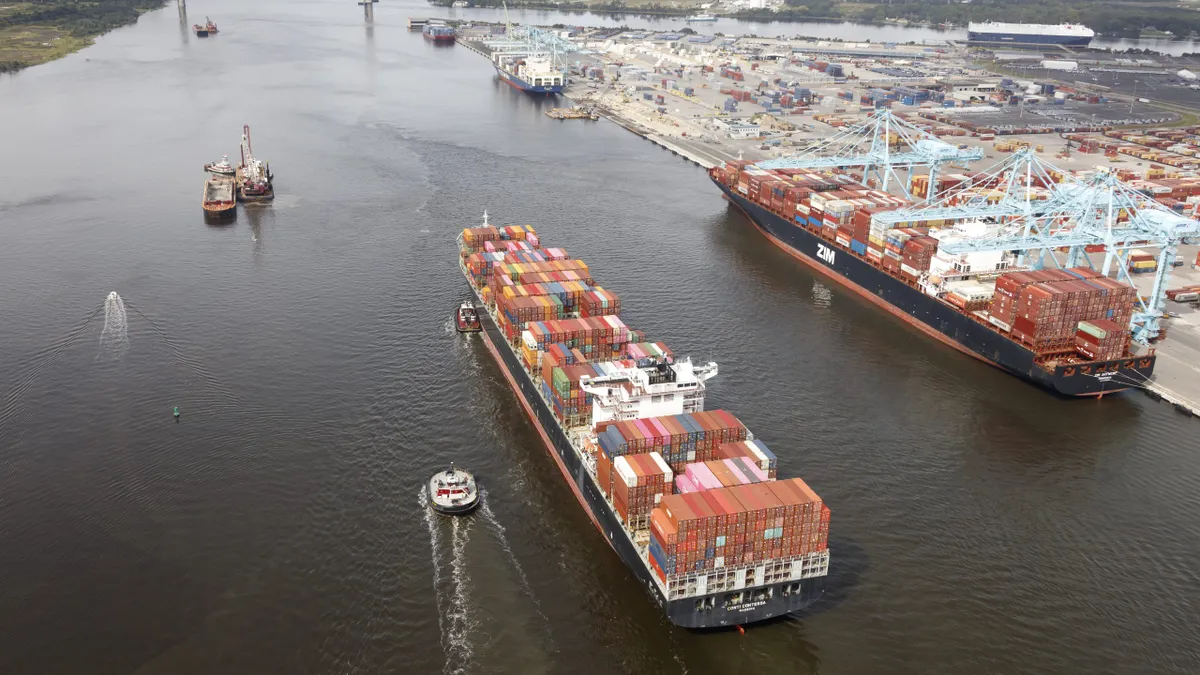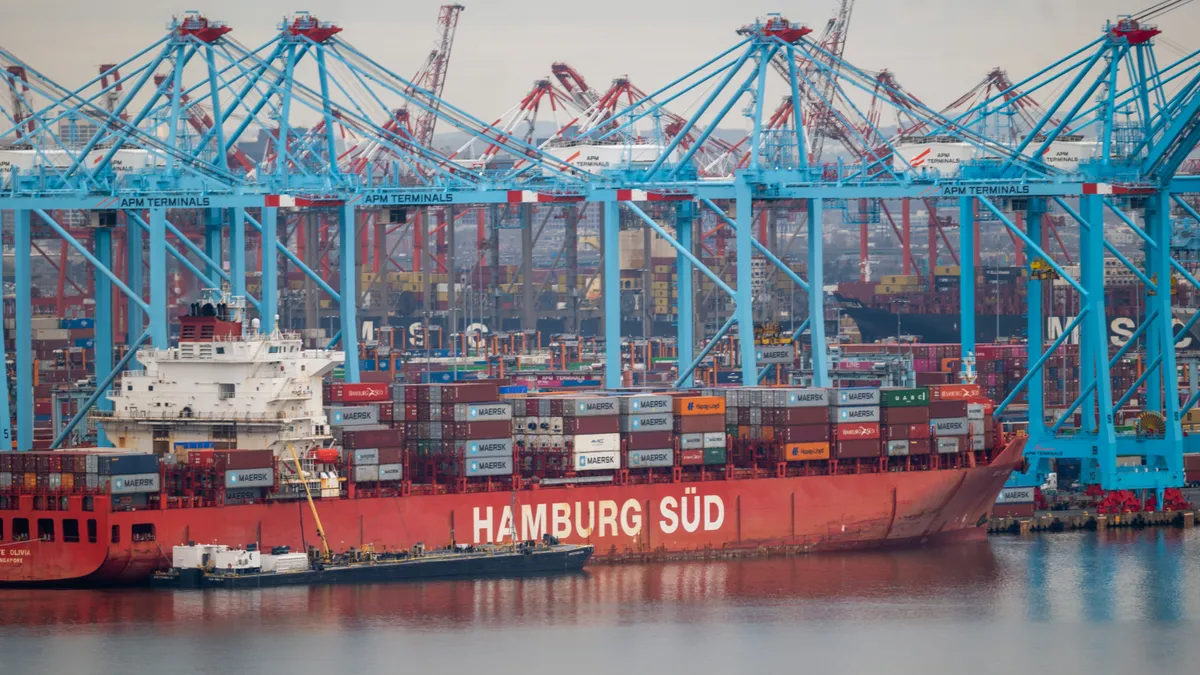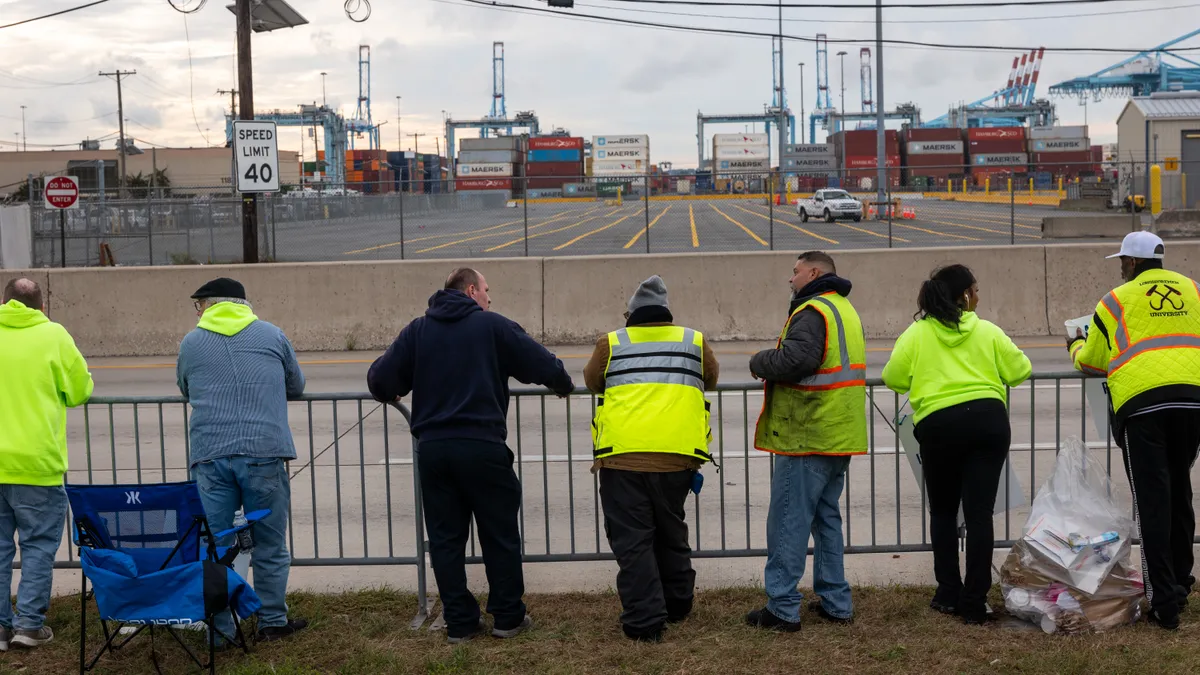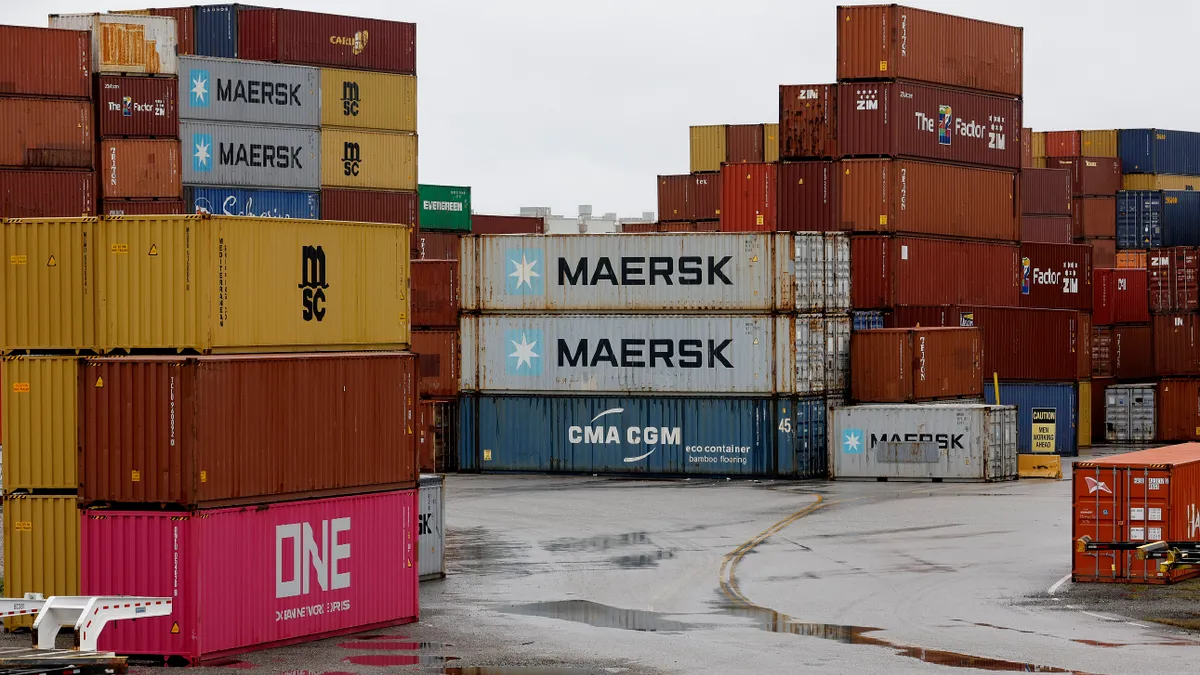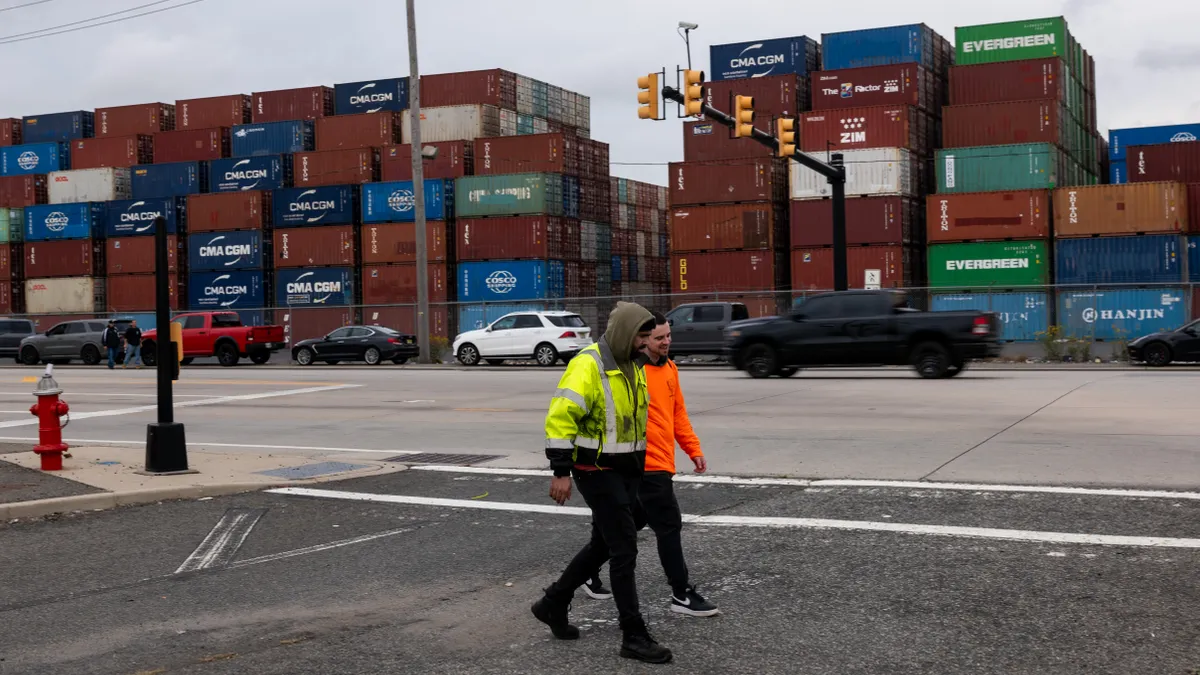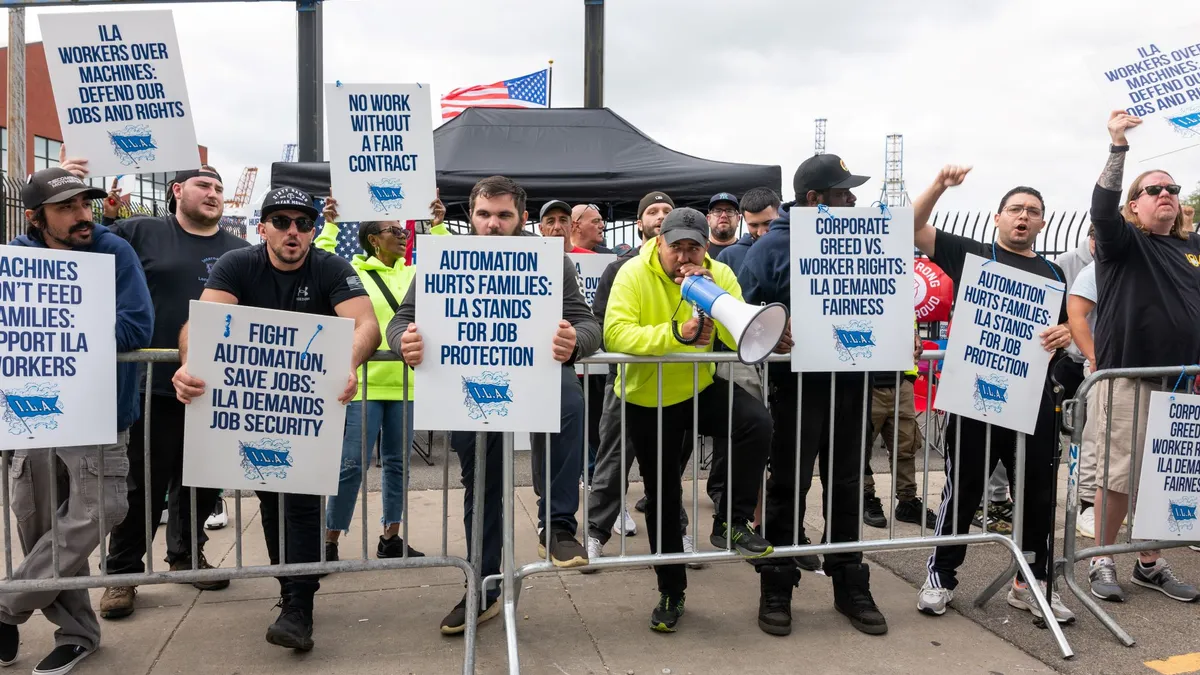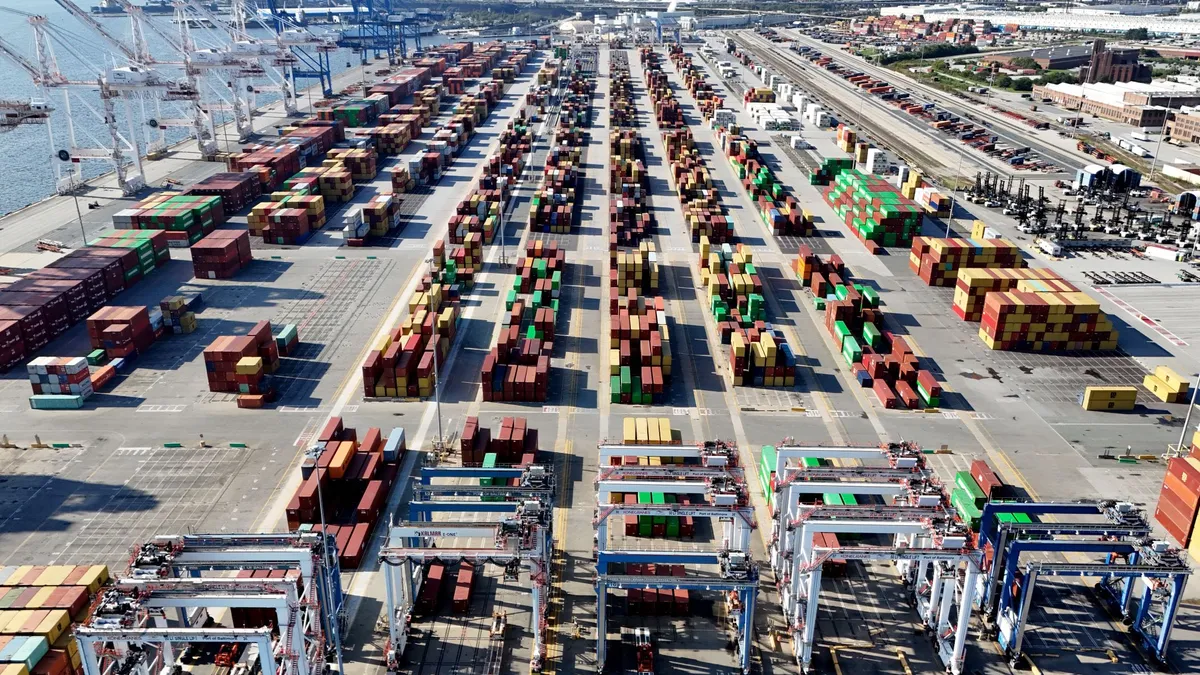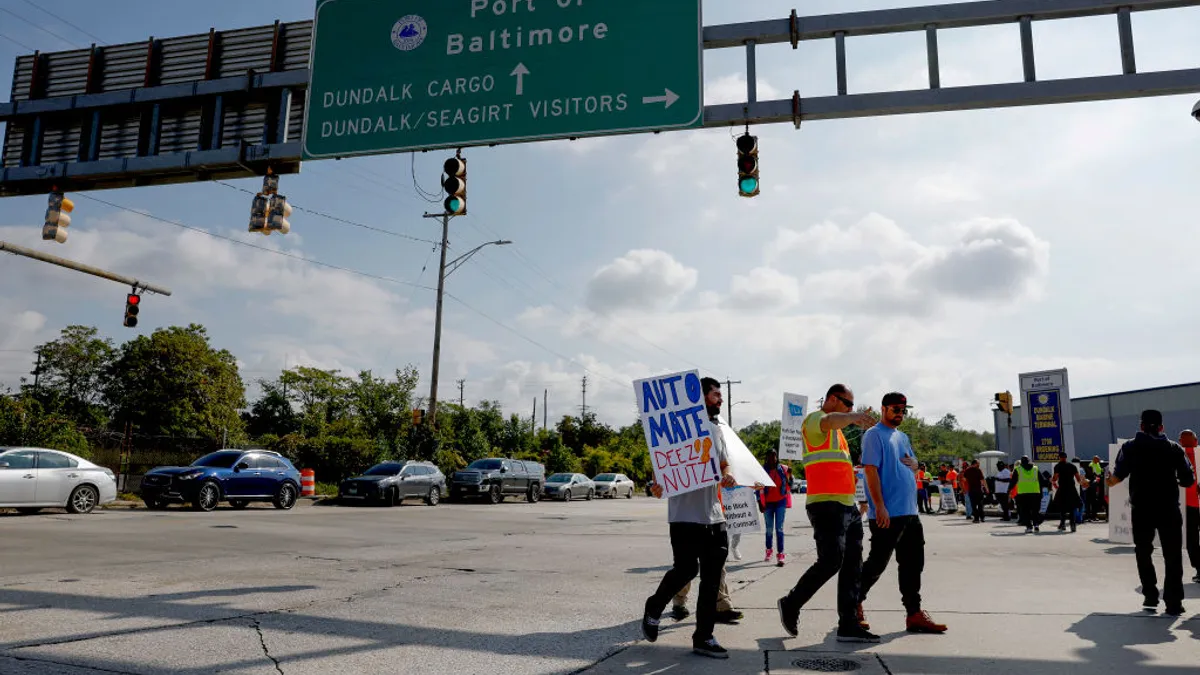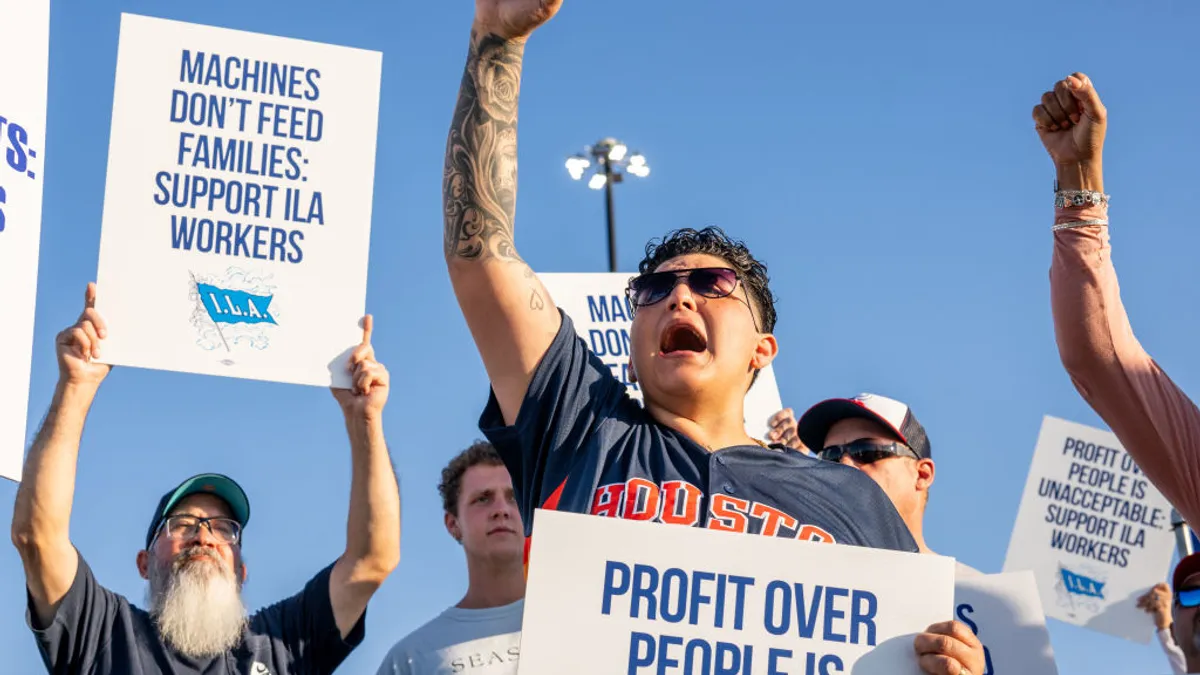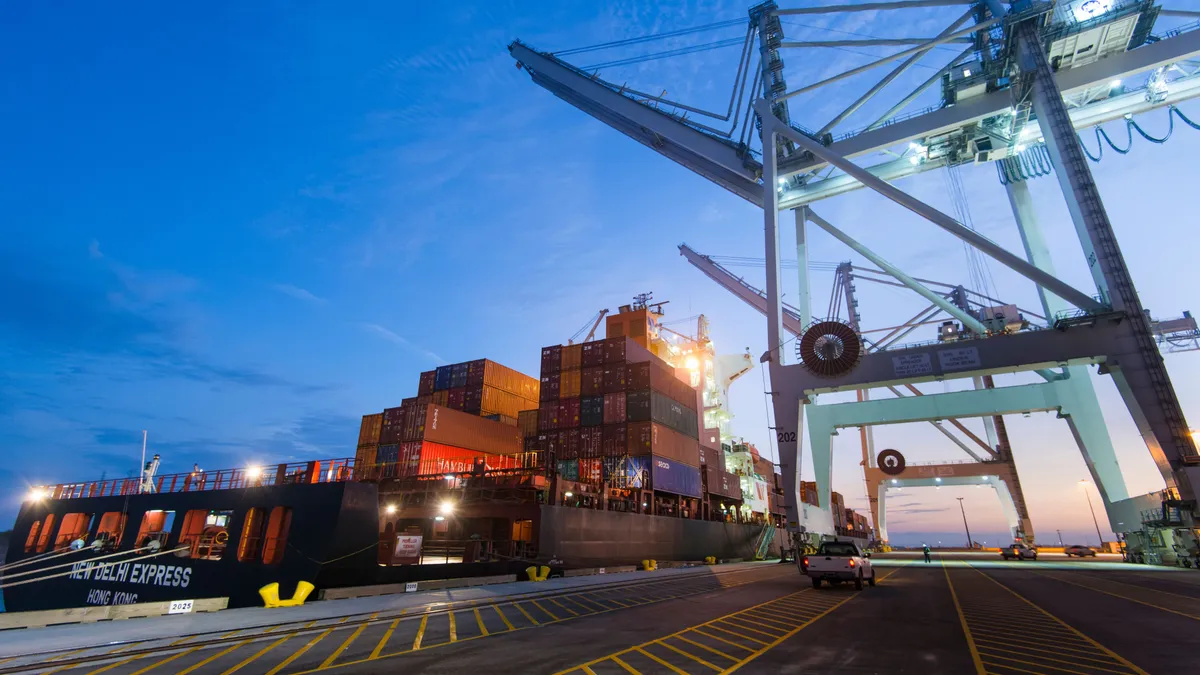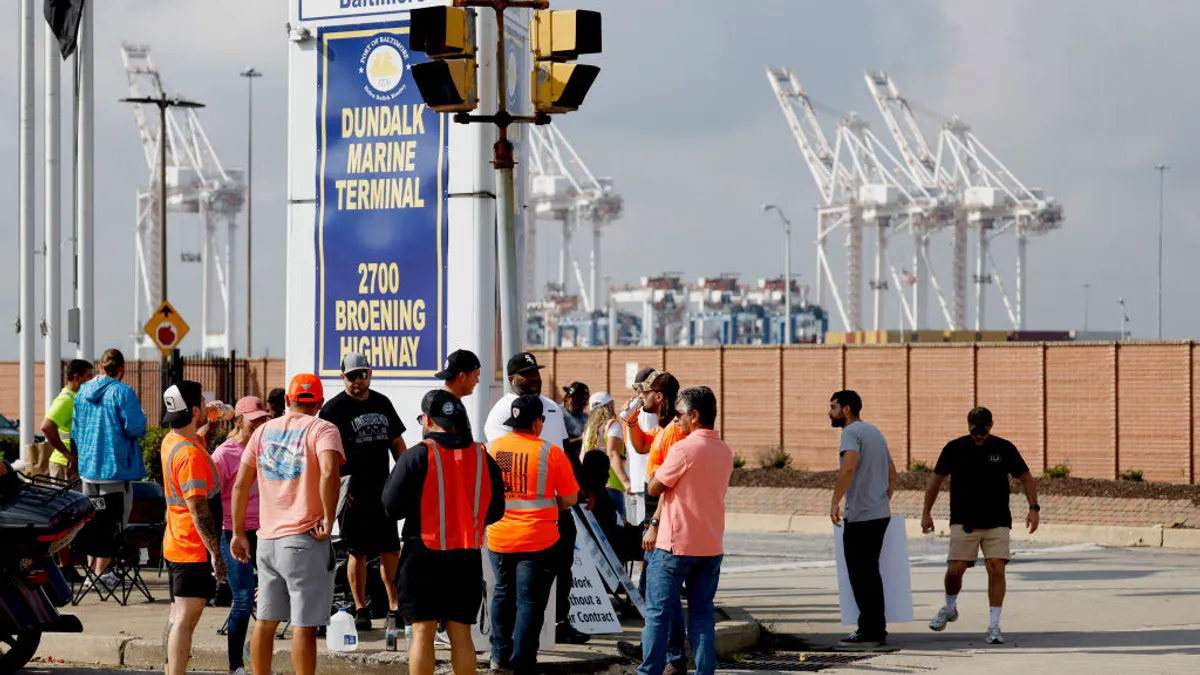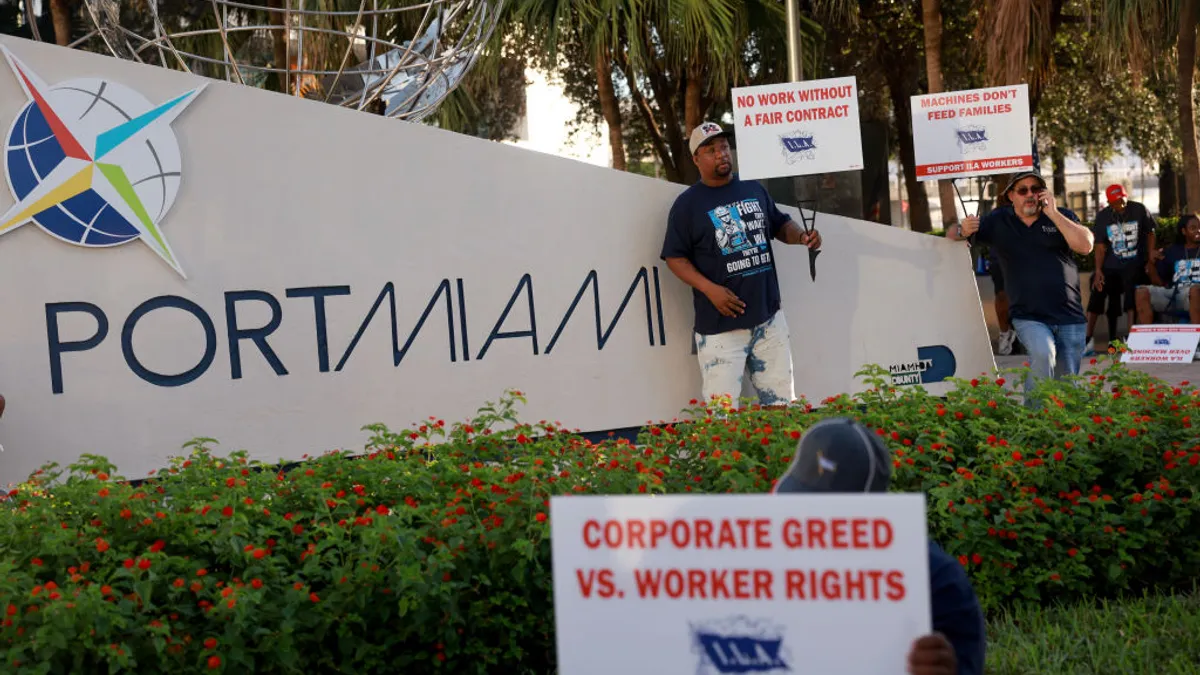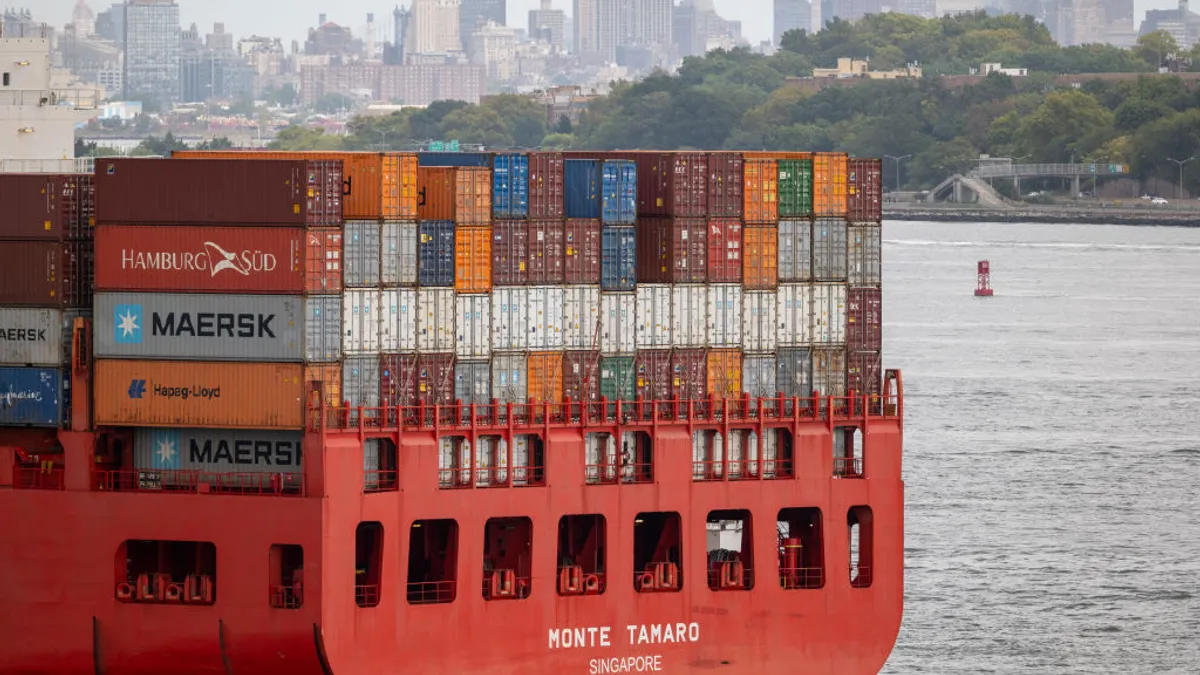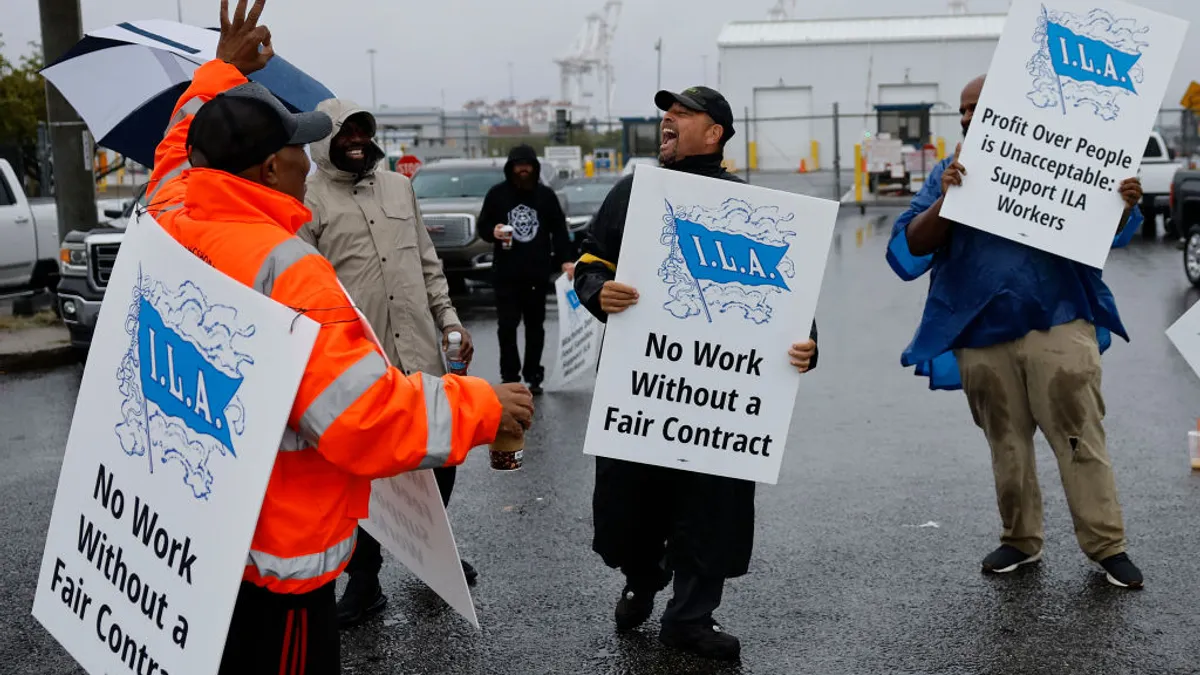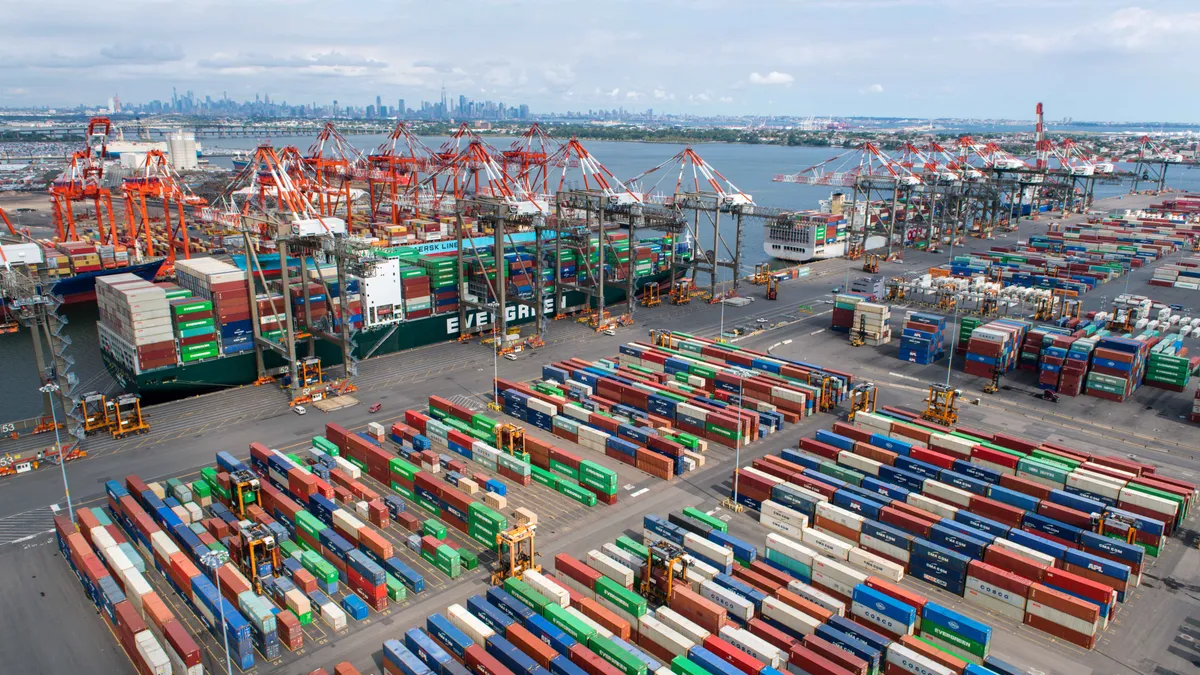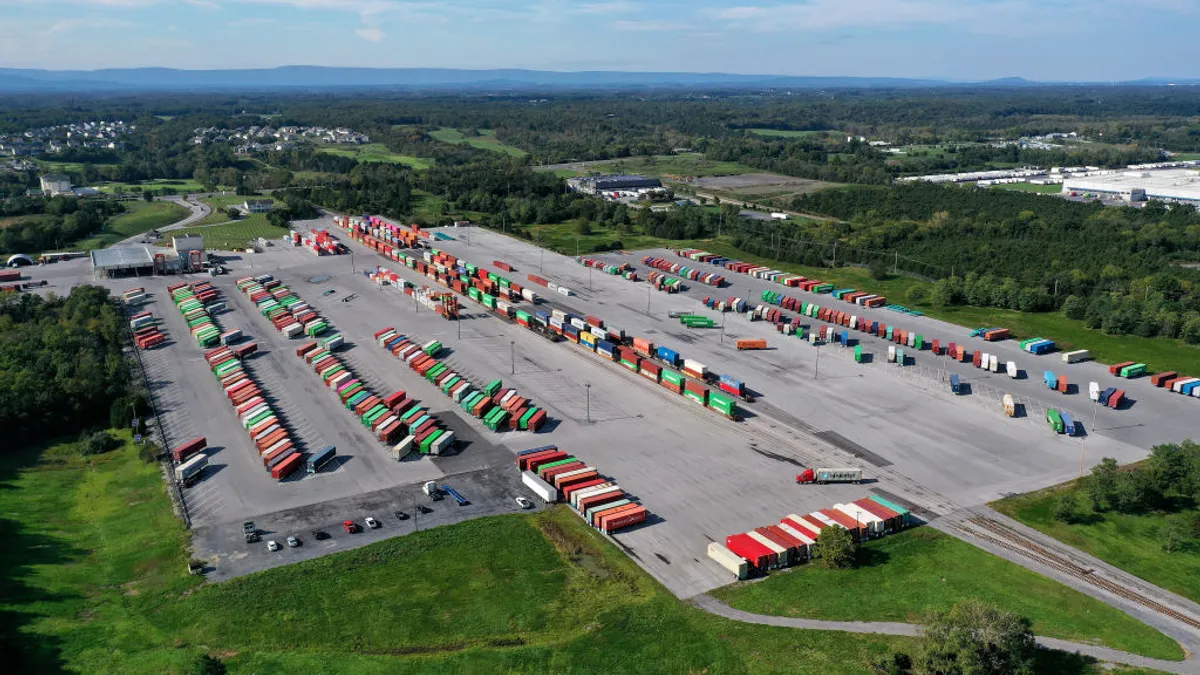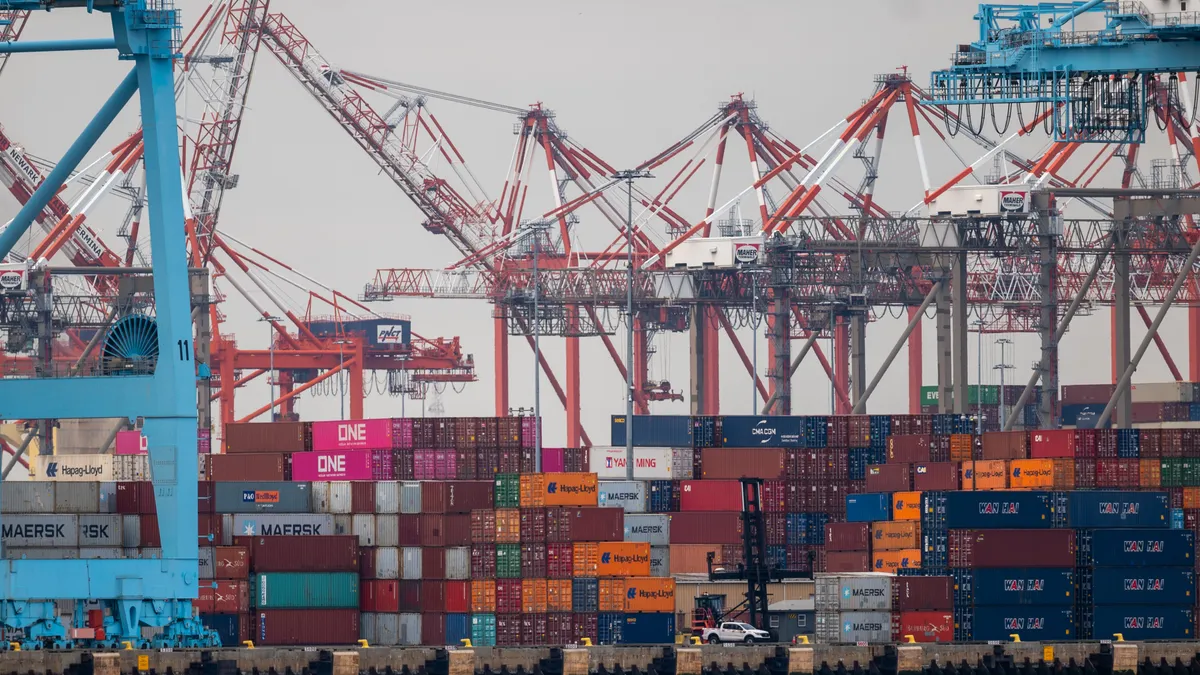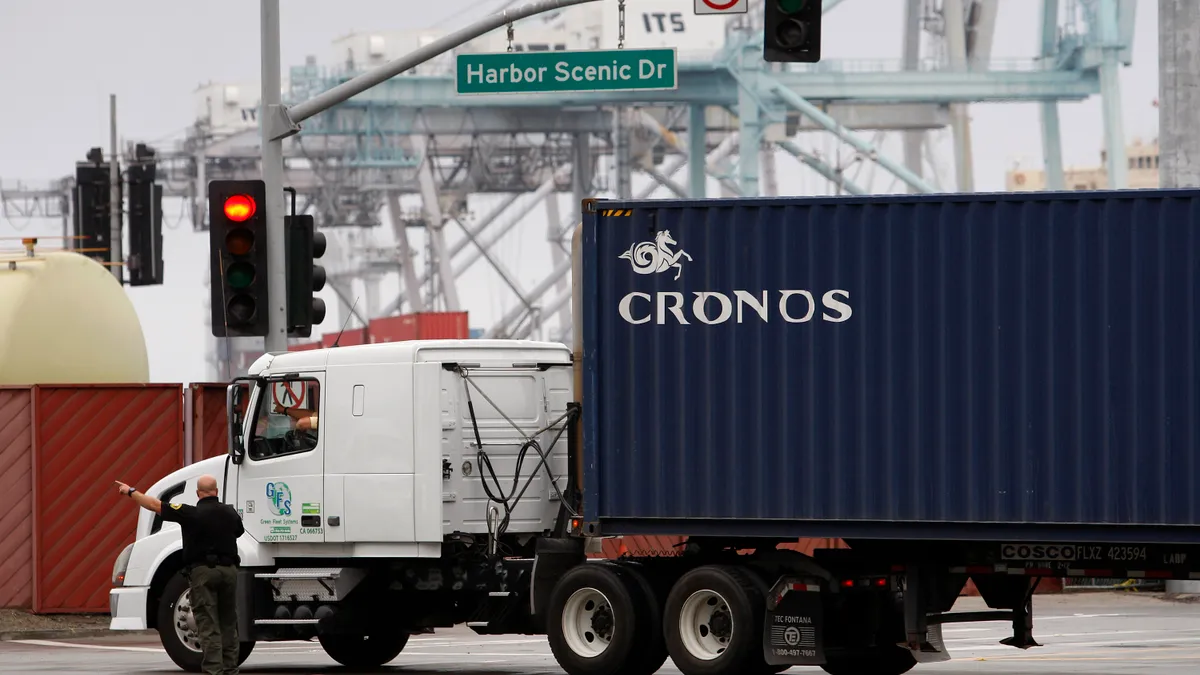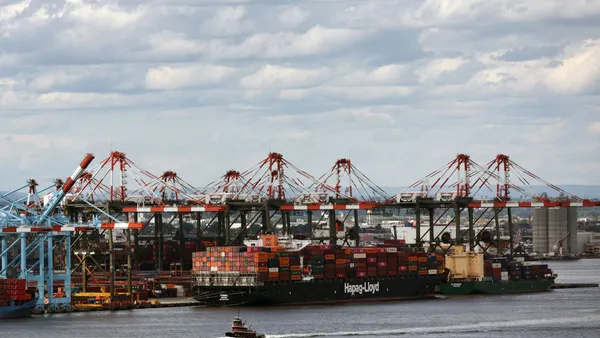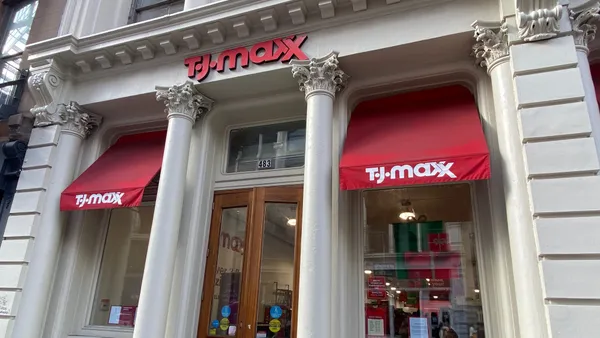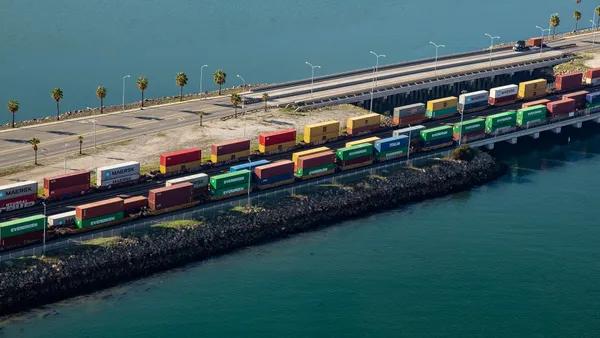The International Longshoremen’s Association initiated a strike on Tuesday, shutting down dozens of ports on the East Coast and Gulf Coast and rallying tens of thousands of union members to the picket line.
The union had been threatening to strike amid tense master contract negotiations with the United States Maritime Alliance, or USMX. Talks have stalled on two key issues: wage increases, for which the ILA wants a $5 an hour increase for each of the six years in a new master contract, and the use of automation at ports.
Here are some excerpts of what trade associations and government officials are saying about the strike.
President Joe Biden
“Ocean carriers have made record profits since the pandemic and in some cases profits grew in excess of 800 percent compared to their profits prior to the pandemic. Executive compensation has grown in line with those profits and profits have been returned to shareholders at record rates. It’s only fair that workers, who put themselves at risk during the pandemic to keep ports open, see a meaningful increase in their wages as well.
“As our nation climbs out of the aftermath of Hurricane Helene, dockworkers will play an essential role in getting communities the resources they need. Now is not the time for ocean carriers to refuse to negotiate a fair wage for these essential workers while raking in record profits. My Administration will be monitoring for any price gouging activity that benefits foreign ocean carriers, including those on the USMX board.
“It is time for USMX to negotiate a fair contract with the longshoremen that reflects the substantial contribution they’ve been making to our economic comeback.”
The International Brotherhood of Teamsters President Sean O’Brien
“The ocean carriers are on strike against themselves after failing to negotiate a contract that recognizes the value of these workers. Our ILA brothers and sisters play a critical role in keeping the American economy running, and they deserve industry-leading wages and robust job protections for the vital work they perform.
“Don’t forget — Teamsters do not cross picket lines. The Teamsters Union is 100 percent committed to standing with our Longshoremen brothers and sisters until they win the contract they deserve.”
National Association of Manufacturers President and CEO Jay Timmons
“Manufacturers call on President Biden to intervene by invoking the Taft-Hartley Act, which will force ports to resume operations while negotiations continue.
“There will be dire economic consequences on the manufacturing supply chain if a strike occurs for even a brief period. NAM estimates show a strike at the East and Gulf Coast ports would jeopardize $2.1 billion in trade daily, and the total economic damage could reduce GDP by as much as $5 billion per day.”
New Jersey Business & Industry Association President and CEO Michele Siekerka
“While we have a very healthy respect for the collective bargaining process, the fact of the matter is the stakes are too high for New Jersey and the rest of the nation to be subject to supply chain shortages, higher prices and delays in goods reaching households and businesses.
“It’s critical that the federal government keep a close watch on both the ILA and the U.S. Maritime Alliance as negotiations continue — and to not wait long to invoke the Taft-Hartley Act if it appears this impasse cannot be resolved in short order.”
National Retail Federation President and CEO Matthew Shay
“NRF urges President Biden to use any and all available authority and tools — including use of the Taft-Hartley Act — to immediately restore operations at all impacted container ports, get the parties back to the negotiating table and ensure there are no further disruptions.
“A disruption of this scale during this pivotal moment in our nation’s economic recovery will have devastating consequences for American workers, their families and local communities. After more than two years of runaway inflationary pressures and in the midst of recovery from Hurricane Helene, this strike will result in further hardship for American families. The administration must prioritize our economy — and the millions of Americans who depend on it for their livelihood and wellbeing — and intervene immediately to prevent further hardship and deeper economic consequences.”
National Association of Wholesaler-Distributors President and CEO Eric Hoplin
“The East and Gulf Coast port strike is putting our economy and national security at risk. This strike isn’t just about disrupting a few shipments; it’s about stopping the supply chain and bringing the flow of critical goods to a standstill.
“The damage could reach $5 billion a day, with small and mid-sized businesses at risk due to missed deliveries and empty shelves. The Biden administration must use its authority now to stop the strike before the impact becomes irreversible. This is not just about pay or a shipping delays — it’s about our global competitiveness. The ILA’s demands to ban automation in ports will cripple our ability to compete internationally, while ports in Europe and Asia embrace automation and technology to stay ahead.”
Transportation Intermediaries Association President and CEO Anne Reinke
"With the longshoremen’s strike now in effect, the disruption to our supply chain is both immediate and far-reaching, impacting industries from retail to manufacturing at a crucial time — just as the holiday season begins. As industry experts have noted, for every day of the strike, it will take five to seven days to recover. Essential goods are at risk of delays and price increases, which will severely affect consumers nationwide. With 43% of U.S. imports moving through these ports, the economic consequences will deepen the longer the strike continues.
“We strongly urge both the ILA and United States Maritime Alliance (USMX) to resolve their differences at the bargaining table. Additionally, we call on President Biden to intervene and facilitate a resolution to protect the stability of the U.S. economy and supply chain. The integrity of our supply chain is at stake, and further delays will only worsen the impact on businesses and consumers alike."
U.S. Department of Agriculture
“The Administration is taking action to monitor and address potential impacts on consumers due to labor disputes at East Coast and Gulf Coast ports. Our analysis shows we should not expect significant changes to food prices or availability in the near term. Thanks to the typically smooth movement through the ports of goods, and our strong domestic agricultural production, we do not expect shortages anytime in the near future for most items. Likewise, non-containerized bulk export shipments, including grains, would be unaffected by this strike. For meat and poultry items that are exported through East and Gulf Coast ports, available storage space and re-direction of products to alternative domestic and international markets can alleviate some of the pressure on farmers and food processors. We are keeping an eye on downstream impacts in the west, and we will continue to monitor and work with industry to respond to potential impacts.”
American Chemistry Council President and CEO Chris Jahn
“The ports impacted by the strike account for about 90% of the waterborne chemical shipments that move in and out of the U.S.
"Nearly all manufactured goods are touched by the business of chemistry, which means transporting chemicals is essential to keeping the economy running. The chemicals shipped through these ports are used by every segment of the economy, including chemistry needed to support healthcare, energy generation, agriculture, auto manufacturing, building and construction, household products, aerospace and defense, semiconductor chips and electronics, and more.
“Shutting down the ports along the East and Gulf Coasts will result in a major disruption of chemical imports and exports, which in turn will hurt the broader economy both here and abroad.”
Retail Industry Leaders Association President Brian Dodge
“As logistics leaders, retailers have already activated contingency plans, including rerouting shipments, to ensure consumer goods reach their final destination with limited disruption or extra costs. Shoppers can rest assured holiday merchandise will be on shelves; however, the longer this work stoppage goes on, the harder it will become to shield customers from its effects.
“Even though leading retailers have prepared for disruptions, the U.S. economy is likely to see immediate impacts from even a short-lived strike. Latest estimates suggest a strike could cost the economy over $4 billion a day. We’ve weathered challenging economic storms over the last several years, most of which were unexpected and out of our control. In this case, the two parties had years of preparation to find an agreement, making the impending strike and its economic harm entirely foreseeable and avoidable.”
Consumer Brands Association VP of Campaigns & Special Projects Tom Madrecki
“This strike will have significant consequences for consumer packaged goods manufacturers and consumers, and the broader U.S. economy. The shutdown of East Coast ports will imperil the import and export of perishable products, which are critical to maintaining the availability and affordability of many everyday products all around the world. President Biden and his administration must act proactively to mitigate this clear supply chain risk and keep the two sides at the negotiating table before it’s too late.”



